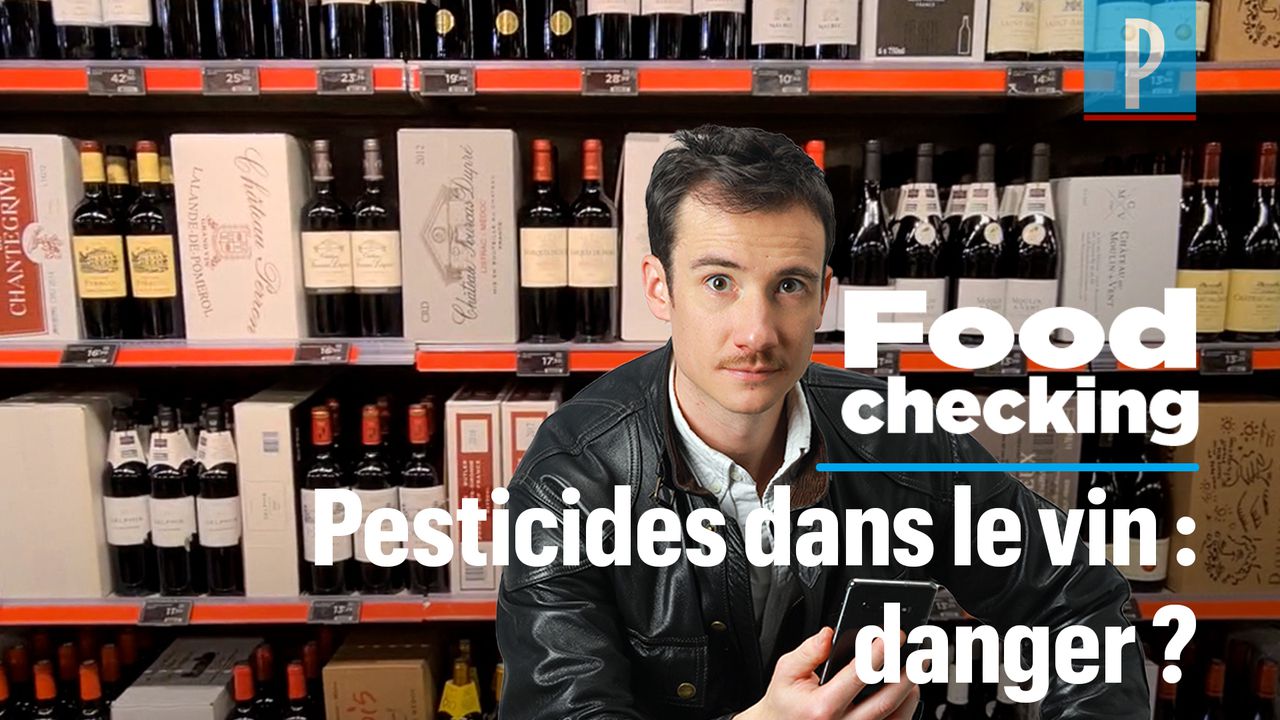"These bunches have been treated with synthetic products," explains Patrick Vasseur, showing us a bunch of black grapes which will be harvested in a few days.
These are fully authorized products, highly regulated with regard to health and the environment.
"
Patrick Vasseur is a winegrower and vice-president of the Gironde chamber of agriculture.
And he's not hiding it: yes, he uses phytosanitary products to cultivate his vines, including the famous Roundup weedkiller with glyphosate.
In its phytosanitary room, it stores about fifteen different products.
“Sulfur and copper can be used in organic farming,” he says.
All of these products have "risk phrases".
For example, sulfur is irritating and causes small burns.
»And the« Karate Zeon », with which he made his last treatment?
"Can cause skin allergies and very toxic for aquatic environments", reads the winegrower on the packaging of the small container.
On his farm, he has a small plot that he does not treat with synthetic phytosanitary products, nor with organic phytosanitary products.
Result: the bunches were destroyed on June 10 by mildew.
“If we do not intervene with the tools we have, which are efficient, we lose crops.
"
Blindly, organic wine comes first
In France, viticulture is the agricultural sector that uses the most pesticides.
According to a study, the vine represents only 3% of the useful agricultural surface in France, but ... concentrates 20% of the total volume of pesticides used in France!
Our country is also the 3 rd largest consumer of pesticides in the world, behind the United States and Japan, and a good first for Europe.
But does this really represent a risk for the consumer?
"We cannot quantify it," answers François Veillerette, founder of the environmental association Générations Futures.
What we do know is that wine will, along with other products, fruits, vegetables and cereals, provide a source of worrying substances.
Newsletter - Most of the news
Every morning, the news seen by Le Parisien
I'm registering
Your email address is collected by Le Parisien to enable you to receive our news and commercial offers.
Learn more
Over the years, it can promote the appearance of pathologies: cancer, problems with fetal development, reproduction problems… ”
Salvation then lies in the labels.
On the shelves, there is a bottle stamped Terra Vitis: "It's sustainable agriculture," comments François Veillerette.
You could say it's chemical farming done by people who pay attention to what they do.
But it's still chemical agriculture.
I am not buying.
"
Another bottle bears the HVE logo - for high environmental value: unreliable as to the absence of synthetic pesticides, according to a recent study by the Alerte aux toxins association.
On the other hand, organic labels find favor in the eyes of our expert: “We know the list of authorized products.
This agriculture is controlled so me, it suits me.
»To be on the safe side, it is better to go for these wines.
But are they better for all that?
In 2017, an experiment carried out with more than 70 gastronomic experts showed that this was the case (read “The taste of pesticides in wine”, G.-E. Séralini and J. Douzelet, Actes Sud).
We wanted to see if we came to the same conclusion by buying three bottles of Bordeaux, 100% Merlot and aged in barrels, and having them taste blindly by an experienced sommelier.
Among the three is an organic wine.
"Do you smell like pesticides?"
»We ask Jimi Hwang, who works at the wine merchant Le Clos des Millésimes, in Bordeaux, when she has just tasted the first wine blindfolded.
“I can't tell you,” she replies.
At the second glass: "I'd like to tell you, but no, I can't."
"And the third:" Still not.
"
Coincidentally, it is still the organic wine that she will judge the best.
It turns out that it is also the cheapest of the three: € 10.15 a bottle against € 12.55 and € 11.90 for the other two bottles whose vines have been treated with chemicals.
“I prefer organic wines,” explains Jimi Hwang.
It's better that we too follow these professionals who respect the soil and think about nature.
"
Find all the videos from our Food Checking series in our Eating Well section, and also on the Parisian's Facebook page, on Snapchat and Instagram.

